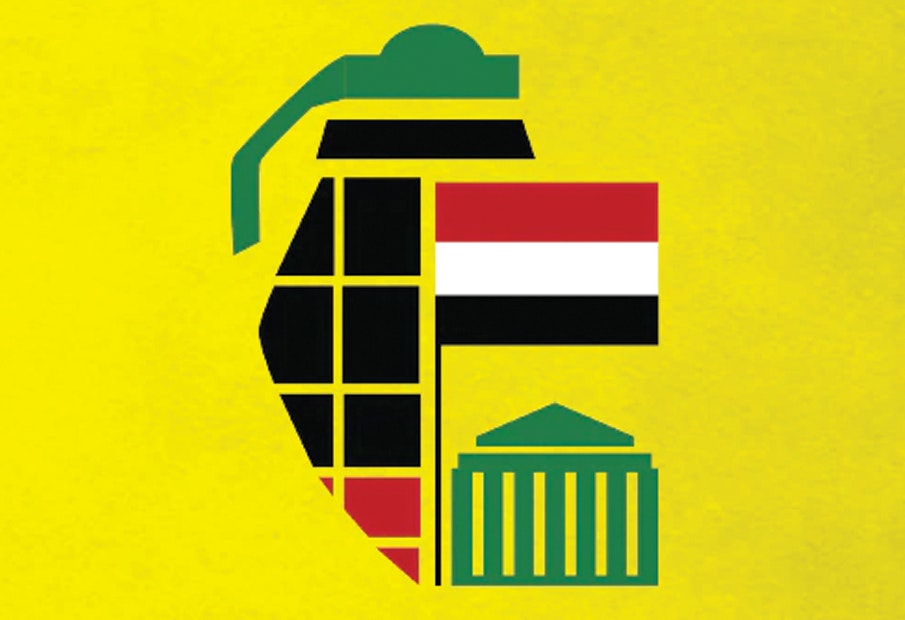The Century Foundation and the Project on Middle East Political Science (POMEPS) invite you to a conference about hybrid actors, militias that have played a central role in state decay in the Middle East and North Africa.
A new report from TCF, supported by the Carnegie Corporation of New York, identifies the factors that make some influential armed groups persistent and successful: constituent loyalty, resilient state relationships, and coherent ideology.
Panelists include: Thanassis Cambanis, Fotini Christia, Dina Esfandiary, Erica Gaston, Michael Wahid Hanna, Michael Knights, Renad Mansour, and Dipali Mukhopadhyay.
More about the TCF Hybrid Actors report:
The report examined cases in Lebanon, Syria, and Iraq, drawing on years of fieldwork, to distinguish between hybrid actors, classic nonstate proxies, and aspirants to statehood—all of which merit different analytical and policy treatment. The report demonstrate the ways that groups can shift along a spectrum as they adapt to changing conditions. This report was written by Thanassis Cambanis, Dina Esfandiary, Sima Ghaddar, Michael Wahid Hanna, Aron Lund, and Renad Mansour.
About the panelists:
Fotini Christia is a Professor of Political Science at MIT. She received her PhD in Public Policy from Harvard University in 2008 and has been awarded an inaugural Andrew Carnegie fellowship and a Harvard Academy fellowship among others. Her book, Alliance Formation in Civil Wars, (Cambridge, 2012), won multiple awards.
Dina Esfandiary is a fellow at The Century Foundation and international security program research fellow at Harvard’s Kennedy School. She is the co-author of Triple-Axis: Iran’s Relations with Russia and China (London: I. B. Tauris, 2018), and Living on the Edge: Iran and the Practice of Nuclear Hedging (Palgrave Macmillan, 2016).
Erica Gaston is a non-resident fellow with the Global Public Policy Institute (GPPi) in Berlin and a PhD candidate at the University of Cambridge. Her research focus is on local, hybrid, and sub-state forces in Iraq, Afghanistan, and Syria: both the current role and impact of these forces, and different accountability or control mechanisms applied by supporting countries.
Michael Knights is a Boston-based senior fellow of The Washington Institute, specializing in the military and security affairs of Iraq, Iran, and the Persian Gulf states.
Renad Mansour is a research fellow in the Middle East and North Africa Programme at Chatham House. He is also a research fellow at the Cambridge Security Initiative based at Cambridge University, and a research fellow at the Institute of Regional and International Studies (IRIS) at the American University of Iraq, Sulaimani. He received his PhD from Cambridge University.
Dipali Mukhopadhyay is an Associate Professor of International and Public Affairs at Columbia University, where she is also a faculty affiliate of the Saltzman Institute of War and Peace Studies. She is the author of Good Rebel Governance: Revolutionary Politics and Western Intervention in Syria (Cambridge University Press, forthcoming) with Kimberly Howe and Warlords, Strongman Governors and State Building in Afghanistan (Cambridge University Press, 2014).
Moderators
Thanassis Cambanis is a senior fellow at The Century Foundation, specializing in the Middle East and U.S. foreign policy. He is the author of Once Upon a Revolution: An Egyptian Story (Simon and Schuster, 2015) and A Privilege to Die: Inside Hezbollah’s Legions and Their Endless War against Israel (Free Press, 2010).
Michael Wahid Hanna is a senior fellow at The Century Foundation. He is also a nonresident senior fellow at the Reiss Center on Law and Security at New York University School of Law. Hanna works on issues of international security, international law, and U.S. foreign policy in the Middle East and South Asia.
